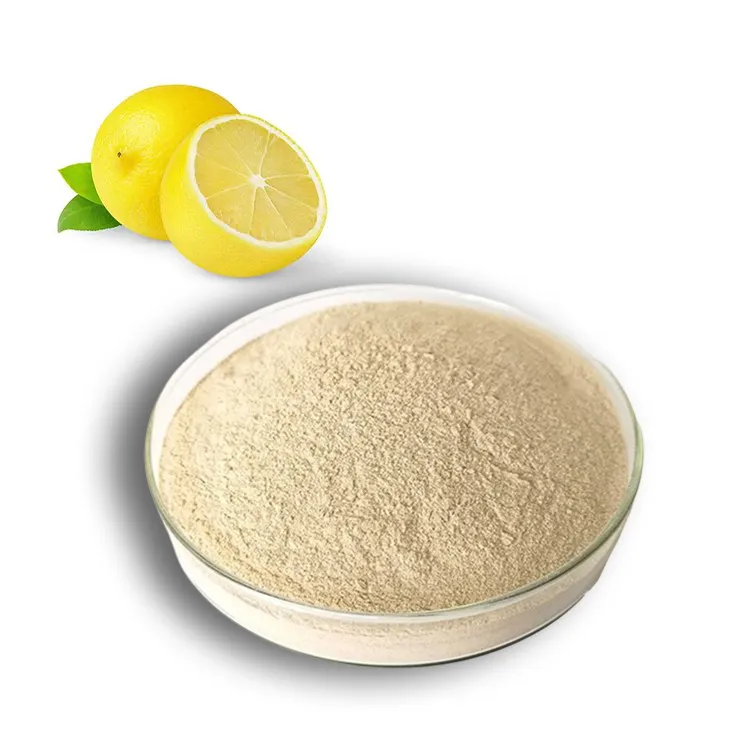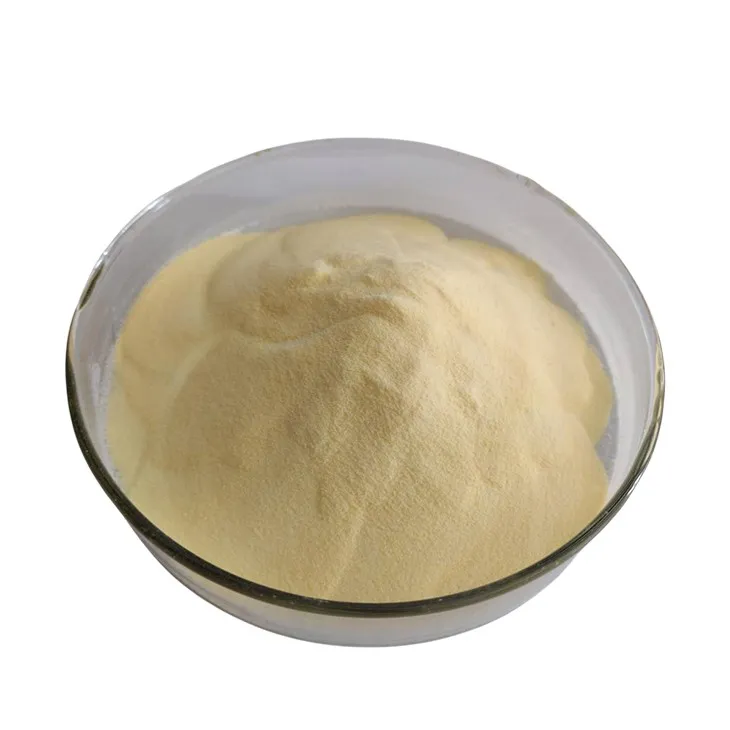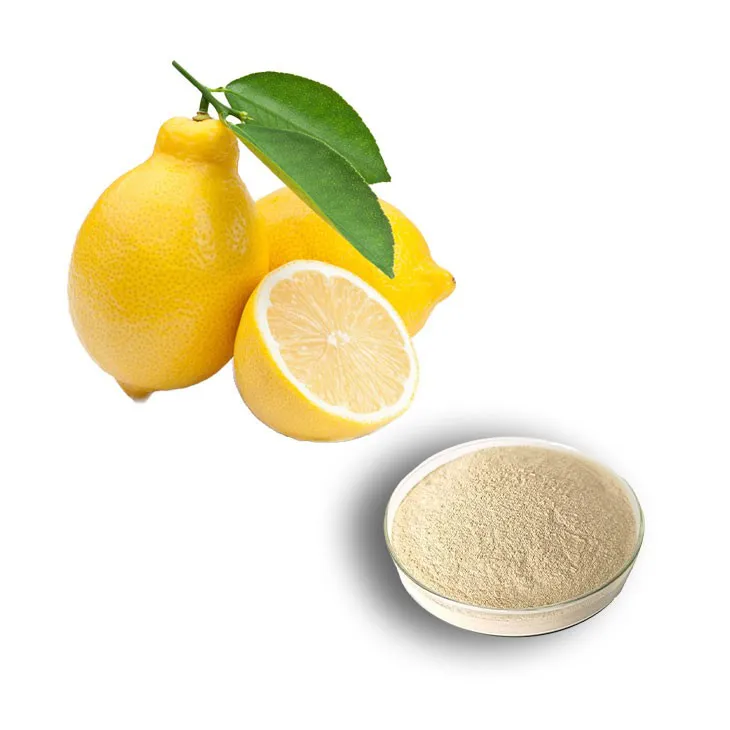- 0086-571-85302990
- sales@greenskybio.com
Ingredients for Glowing Skin - Lemon Extract
2024-11-12

Introduction
In the pursuit of healthy and glowing skin, numerous ingredients have been explored over the years. One such ingredient that has gained significant popularity is Lemon Extract. Lemon Extract has emerged as a remarkable ingredient for achieving that coveted glowing skin. It is not just a simple addition to skincare products but a powerhouse of beneficial compounds that offer a wide range of advantages for the skin.

The Power of Vitamin C in Lemon Extract
Vitamin C as an Antioxidant
One of the key components of lemon extract is vitamin C. Vitamin C is a powerful antioxidant that plays a crucial role in skin health. In the body, free radicals are constantly formed as a result of various factors such as environmental pollutants, UV radiation, and normal metabolic processes. These free radicals can cause damage to the skin cells at a molecular level. They are like little "vandals" that attack the healthy components of our skin.
Vitamin C steps in as a defender. It combats these free radicals, neutralizing their harmful effects. By doing so, it helps in preventing premature aging of the skin. Premature aging can manifest in the form of wrinkles, fine lines, and a dull complexion. When free radicals damage the skin cells' DNA, it can accelerate the aging process. Vitamin C helps to safeguard the skin cells' integrity, ensuring that they function optimally and maintain their youthful state for a longer time.
Role in Collagen Production
Another important aspect of vitamin C in lemon extract is its role in collagen production. Collagen is a protein that is like the "scaffolding" of our skin. It provides structure and elasticity. As we age, the production of collagen in our body naturally decreases. This leads to a loss of skin elasticity, and the skin begins to sag.
Vitamin C is essential for the synthesis of collagen. It helps in the formation of new collagen fibers in the skin. By promoting collagen production, lemon extract with its vitamin C content helps to enhance skin elasticity. This means that the skin becomes more firm and supple. Wrinkles and fine lines are less likely to form, and existing ones may even appear reduced. The skin looks plumper and more youthful, giving that glowing appearance.

Exfoliating Properties of Lemon Extract
The Natural Acids in Lemon
Lemon extract contains natural acids, with citric acid being one of the prominent ones. These acids have gentle exfoliating properties. The outermost layer of our skin is made up of dead skin cells. Over time, these dead cells can accumulate, making the skin look dull and rough. They can also clog pores, leading to issues such as blackheads and whiteheads.
The citric acid in lemon extract works by breaking down the bonds that hold these dead skin cells together. It gently exfoliates the skin, removing these dead cells layer by layer. This process is much more natural and mild compared to some harsh chemical exfoliants. As the dead cells are sloughed off, the underlying fresh and healthy skin is revealed.
Benefits of Exfoliation
Exfoliation with lemon extract has several benefits. Firstly, it results in a smoother complexion. The skin's surface becomes more even, and the texture is improved. This makes it easier for skincare products to be absorbed by the skin. For example, if you apply a moisturizer after exfoliating with lemon extract, the moisturizer can penetrate deeper into the skin, providing better hydration.
Secondly, by unclogging pores, it helps to prevent skin problems such as acne. When pores are clogged, sebum (the skin's natural oil) cannot be released properly, and bacteria can start to grow, leading to breakouts. By keeping the pores clean through exfoliation, lemon extract helps to maintain a clear and healthy complexion.

Antibacterial Properties of Lemon Extract
How it Fights Bacteria
Lemon extract has antibacterial properties. These properties are beneficial in keeping the skin clean and free from harmful bacteria. The skin is constantly exposed to various types of bacteria from the environment. Some of these bacteria can be pathogenic and cause skin infections or acne breakouts.
The antibacterial components in lemon extract work by disrupting the cell membranes of bacteria or interfering with their metabolic processes. This effectively kills or inhibits the growth of bacteria on the skin. For example, Propionibacterium acnes, which is a common bacteria associated with acne, can be targeted by the antibacterial properties of lemon extract.
Preventing Acne and Maintaining Skin Health
By preventing the growth of acne - causing bacteria, lemon extract can help in preventing acne breakouts. Acne can be a major concern for many people, especially those with oily or combination skin. It not only affects the appearance of the skin but can also cause discomfort and self - esteem issues.
In addition to preventing acne, the antibacterial properties of lemon extract contribute to overall skin health. A clean skin surface is less likely to develop other skin infections or inflammations. It helps to keep the skin in a balanced state, where the natural flora (good bacteria) can thrive, and the harmful bacteria are kept in check.

Using Lemon Extract in Skincare
DIY Skincare with Lemon Extract
There are several ways to incorporate lemon extract into your skincare routine at home. One simple method is to make a lemon extract toner. You can mix lemon juice (which contains the extract) with water in a ratio of 1:3. Apply this mixture to your face using a cotton ball after cleansing. However, it is important to note that pure lemon juice can be quite acidic and may cause irritation for some people. So, it is advisable to do a patch test on a small area of your skin first.
Another option is to make a lemon extract face mask. You can combine lemon juice with ingredients like honey and yogurt. Honey has moisturizing properties, and yogurt contains lactic acid which further aids in exfoliation. Mix these ingredients well and apply the mask to your face for about 15 - 20 minutes before rinsing off.
Commercial Skincare Products with Lemon Extract
Many commercial skincare products now include lemon extract as an ingredient. These products range from cleansers to moisturizers and serums. When choosing a commercial product with lemon extract, it is important to read the label carefully. Look for products that have a suitable concentration of lemon extract and are formulated for your skin type. For example, if you have sensitive skin, you may want to choose a product that has been tested for sensitive skin and contains other soothing ingredients in addition to lemon extract.
Precautions When Using Lemon Extract
Potential Irritation
While lemon extract has many benefits for the skin, it is not without its precautions. As mentioned earlier, lemon extract is acidic, and this acidity can cause irritation for some people. Those with sensitive skin are more likely to experience redness, itching, or a burning sensation when using products containing lemon extract. It is essential to start with a small amount and gradually increase the usage if there are no adverse reactions.
Sun Sensitivity
Another important precaution is the increased sun sensitivity that can occur when using lemon extract. The exfoliating action of lemon extract can make the skin more vulnerable to UV radiation. This means that if you use lemon extract - based products, you need to be extra cautious about sun protection. Always apply a broad - spectrum sunscreen with a high SPF when going outdoors, even on cloudy days.
Conclusion
In conclusion, lemon extract is a natural and effective solution for those seeking to rejuvenate their skin and achieve a glowing complexion. Its rich content of vitamin C, natural acids, and antibacterial properties make it a multi - faceted ingredient in skincare. Whether used in DIY skincare recipes or incorporated into commercial products, lemon extract offers a range of benefits from antioxidant protection to exfoliation and acne prevention. However, it is important to be aware of the precautions when using it, especially for those with sensitive skin or concerns about sun sensitivity. By using lemon extract correctly, it can be a valuable addition to your skincare routine, helping you to attain and maintain healthy, glowing skin.
FAQ:
How does lemon extract help in collagen production?
Lemon extract is rich in vitamin C. Vitamin C is essential for collagen synthesis in the body. It stimulates the fibroblasts in the skin to produce more collagen. Collagen is a key protein that provides structure and elasticity to the skin. By promoting collagen production, lemon extract helps enhance skin elasticity and reduces the appearance of wrinkles.
Can lemon extract be used on all skin types?
While lemon extract has many benefits, it may not be suitable for all skin types. People with very sensitive skin may experience irritation because of the natural acids in lemon extract. It is advisable to do a patch test first. For normal, oily, and combination skin types, lemon extract can generally be beneficial as it exfoliates, unclogs pores, and has antibacterial properties. However, those with dry skin should use it with caution as excessive exfoliation might further dry out the skin.
How often should one use products containing lemon extract?
The frequency of using products with lemon extract depends on various factors such as skin type and the concentration of lemon extract in the product. For those with normal to oily skin, using a product containing lemon extract 2 - 3 times a week might be sufficient. However, if you have sensitive skin, it is better to start with once a week and observe how your skin reacts. Over - using products with lemon extract can lead to skin irritation due to its acidic nature.
What are the other benefits of the natural acids in lemon extract?
The natural acids in lemon extract, like citric acid, have multiple benefits. Besides gently exfoliating the skin and removing dead cells, they can also help to balance the skin's pH level. A balanced pH is important for healthy skin as it helps maintain the skin's natural barrier function. These acids can also improve skin texture and make it look more radiant by promoting cell turnover.
How does lemon extract prevent acne breakouts?
Lemon extract has antibacterial properties. Acne is often caused by the overgrowth of bacteria on the skin. The antibacterial components in lemon extract can kill or inhibit the growth of these acne - causing bacteria. By keeping the skin clean and free from harmful bacteria, it helps prevent acne breakouts. Additionally, its exfoliating action also unclogs pores, which further reduces the chances of acne formation.
Related literature
- The Role of Citrus Extracts in Skin Health"
- "Beneficial Effects of Vitamin C - Rich Extracts on Skin Aging"
- "Antibacterial Properties of Natural Plant Extracts in Skincare"
- ▶ Hesperidin
- ▶ Citrus Bioflavonoids
- ▶ Plant Extract
- ▶ lycopene
- ▶ Diosmin
- ▶ Grape seed extract
- ▶ Sea buckthorn Juice Powder
- ▶ Fruit Juice Powder
- ▶ Hops Extract
- ▶ Artichoke Extract
- ▶ Mushroom extract
- ▶ Astaxanthin
- ▶ Green Tea Extract
- ▶ Curcumin
- ▶ Horse Chestnut Extract
- ▶ Other Product
- ▶ Boswellia Serrata Extract
- ▶ Resveratrol
- ▶ Marigold Extract
- ▶ Grape Leaf Extract
- ▶ New Product
- ▶ Aminolevulinic acid
- ▶ Cranberry Extract
- ▶ Red Yeast Rice
- ▶ Red Wine Extract
-
Tinospora cordifolia extract
2024-11-12
-
Sea buckthorn oil
2024-11-12
-
Ginseng Root Extract
2024-11-12
-
Green coffee bean Extract
2024-11-12
-
Curcumin Extract
2024-11-12
-
Acai Berry Extract
2024-11-12
-
Lemon Balm Extract
2024-11-12
-
Hops Extract
2024-11-12
-
Panax Ginseng Leaf Extract
2024-11-12
-
Red Wine Extract
2024-11-12





















